Colorado Springs, CO (November 21, 2024)
The 2024 Class includes Women’s division inductees Anna Nazarov, Liz Duffy, Jenny Fey, and Sarah Griffith. These new inductees are joined by the Open division inductees Robbie Cahill, Dylan Tunnell, and Josh Ziperstein. Also included in the Class of 2024 are the Mixed division inductees Steve Finn, Raha Mozaffari, Skyla Sisco, and Will Sutton. From the Contributor category, the Hall welcomes Will Deaver, Michelle Ng, Lynne Nolan, and Henry Thorne, along with Look Back Contributors, Charles Kerr and Bob Pallares. And honoring Open and Women’s division Look Back players, please welcome Rick Geyer, Toby Hankins, Mauricio Matiz, Mark Orders, Leslie Grayson, Susan Hawkins, DeDe Kobylarz Singer, and Liz Phillips.
“We are thrilled to welcome this robust class of impressive new members to the Ultimate Hall of Fame,” said Suzanne Fields, UHoF Administrator and Vetting Committee chair. “Their accomplishments and competitive excellence are renowned throughout our community. We look forward to honoring them at the next Hall of Fame Induction ceremony to take place during the 2028 USAU National Championships where we’ll be honoring the 2024 through 2028 Classes of Hall inductees.”
To be inducted into the Ultimate Hall of Fame, candidates must complete three steps. The first stage involves “peer voting,” where player candidates are reviewed and ranked by a group of players from their own playing era. In the Contributor category, both Hall members and members of the ultimate community participated in the solicitation and vetting of candidates to identify a final slate. For 2024, the current era time frame was 2006 to 2014 and for the Look Back nominees, the playing eras included 1979-’88 and 1989-’98. The second stage involved winnowing the field to a slate of player candidates through a review of the peer voting results and written applications solicited by the 15-person Vetting Committee. The slate of 28 current player candidates and 7 contributor candidates were announced in the Call to the Community, which requested input from the ultimate community at-large. The final stage involves two rounds of voting for the candidates by the full voting committee comprised of the Vetting Committee and the eligible player and contributor members of the Ultimate Hall of Fame. The Look Back player candidates were voted upon and elevated by their Hall member peers. Since 2018, voting has been segmented by division for player candidates, with Women’s division Hall members voting on Women’s division player candidates, Open members voting on Open player candidates, and the Mixed division members voting on their candidates. Inductees must receive an affirmative vote by at least two-thirds of the eligible Hall voters.
“I am proud of the efforts of the Vetting Committee and Hall of Fame members as we continue to improve and advance the selection process and strive to include the broader ultimate community. We had an incredible class of nominees this year, including many first Ballot inductees,” said Hall of Fame Board President, David Blau. “We are excited to welcome all these new Hall of Fame members.”
The Class of 2024 is the 21st class inducted into the Ultimate Hall of Fame, which was established in 2004 to honor exceptional ultimate players and contributors whose accomplishments are worthy of recognition and merit acknowledgement by their peers.
HALL OF FAME CLASS OF 2024
WOMEN’S DIVISION
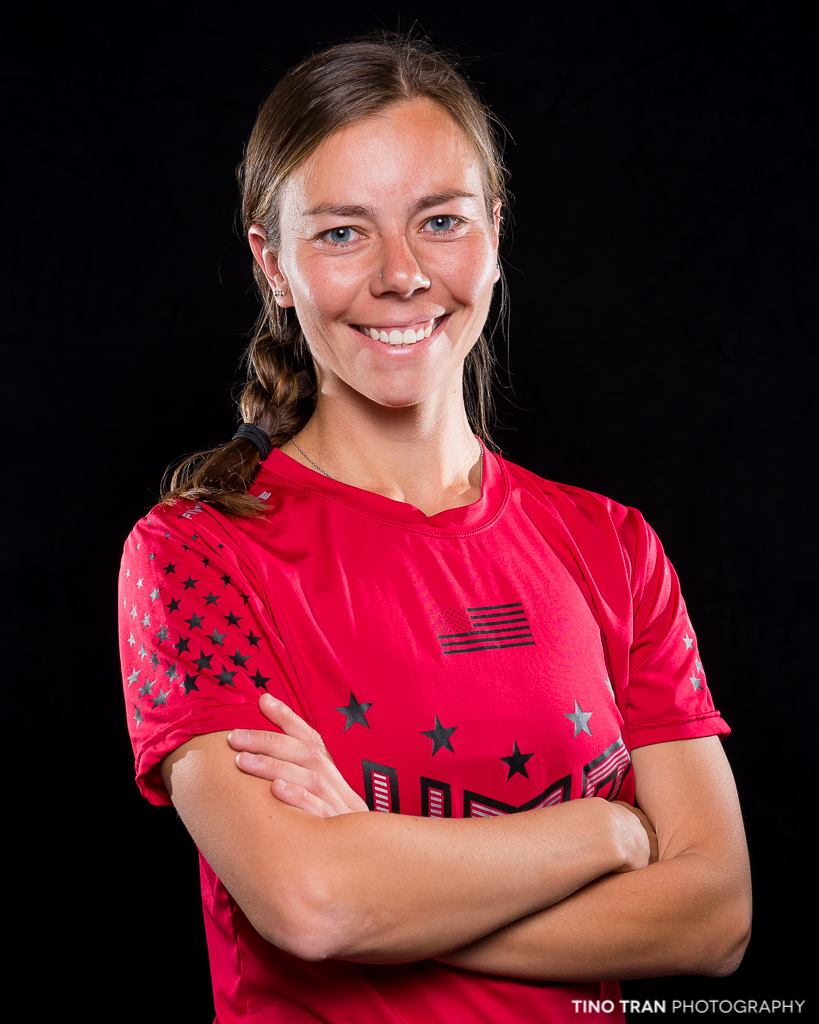
Anna Nazarov (Berkeley, CA)
Anna “Maddog” Nazarov is synonymous with excellence and longevity in Ultimate and widely recognized as one of the sport’s most versatile and precise handlers. Over two decades, she has been a pivotal force on both offense and defense, praised as “the heartbeat of an offense” for her vision, control, and clutch performance in high-stakes moments. A five-time Club Nationals champion (2012, 2017, 2018, 2021, and 2024), Anna also earned gold medals with Team USA at the 2017 World Games (bookended by alternate nods in 2013 and 2021), at 2016 and 2024 WUCG, and at 2015 WBUC. Her accolades include the 2007 Callahan Award and the 2016 Kathy Pufahl Spirit Award, cementing her reputation as both a fierce competitor and a gracious, respected teammate.

Liz Duffy (Seattle, WA)
Liz Duffy is renowned as one of Ultimate’s most exceptional defenders and versatile cutters, recognized for her unmatched marking skills and athleticism. As a core player for Seattle Riot, she contributed to back-to-back Club National championships in 2004 and 2005, with her mark described as “the best the game has ever seen.” Over her eight-year tenure with Riot, Liz helped the team reach six Club National finals and became a defensive force that reshaped opponents’ offensive strategies. After Riot, she extended her impact on teams like Atlanta Ozone and San Francisco Fury, where she continued to showcase her defensive prowess and scoring ability. Liz has also given back to the sport through youth, international, and college women’s team coaching.

Jenny Fey (Arlington, VA)
Jenny Fey is one of the most innovative and dynamic throwers in Ultimate history, known for her unmatched field vision, accuracy, and creativity with the disc. During her career, she became a driving force for Washington, D.C.’s Scandal, helping them raise their profile on the national stage and achieve their first Club National Championship in 2013. Jenny started competing in Juniors and has continued to compete in multiple club divisions, on multiple US national teams, and semi professionally. Revered as a play-making distributor of the disc, her offensive skills were complemented by her defensive tenacity and skills in the air, making her one of the most versatile players on the field. Jenny’s dedication extended beyond gameplay; she has been a mentor and coach, helping to establish DC as a major ultimate hub and inspiring the next generation of players.

Sarah Griffith (Berkeley, CA)
Sarah “Surge” Griffith is a transformative figure in Ultimate, celebrated for her extraordinary athleticism, tactical intelligence, and relentless intensity on both offense and defense. Her peers speak of her as “unstoppable.” During her long competitive career, Surge has captured multiple World Championships, including two World Games gold medals in 2013 and 2017, two WUCC titles with Seattle Riot in 2014 and 2018, and gold at the 2016 WUGC on Team USA. Surge has also captured wins at Club National Championships with San Francisco Fury in 2018 and 2021 and as an assistant Fury coach in 2024. As an assistant coach of the U24 women’s team, Sarah added another gold at the 2023 World Championships. Renowned for her fierce, lock-down defense, she is widely respected as one of the sport’s premier one-on-one defenders. In 2022, she was honored with the Kathy Pufahl Spirit Award, underscoring her deep dedication and impact on Ultimate.
OPEN DIVISION

Robbie Cahill (Mill Valley, CA)
A founding member of Revolver in 2007 at the age of 23, Robbie Cahill was captain and O-line leader taking the young team to 3 National Club Championships in 2010, 2011, and 2015, and 3 World Championships in 2010, 2012, and 2014. He was recognized in 2009 as the Farricker Spirit Award winner. An all around player who excelled on both sides of the disc, Robbie evolved into one of the best handlers and huckers of his era; one of the most dominant and consistent players of his generation. Revolver’s offense ran through him; he was relied upon consistently for break throws and hucks that cut through defenses, while his opponents’ goal was to deny him the disc. His combination of field awareness, smarts, and athleticism were unstoppable. His peak playing years of 2009-2015 coincided with one of the most dominant streaks in Open Club history, with Revolver going 100-3 in 10 Nationals and Worlds tournaments across those years, earning 7 championships.

Dylan Tunnell (Amherst, MA)
A dominant athlete and Paideia alum, Dylan Tunnell played his entire club career with Atlanta’s Chain Lightning starting in 2000 at age 16. He also brought his skills to UGA in 2003 and helped the team advance to College Nationals quarters or semis in his last 3 years with the team. Dylan carried that success to the Open division with Chain as they made at least quarters from 2006-2013 and won the Club Nationals title in 2009. An O-line leader, he was an extreme matchup challenge, able to take nearly anyone deep and was also a formidable thrower. Dylan’s peak years saw him selected to two World Games teams in 2009 and 2013. In 2016, Dylan played with the AUDL’s Atlanta Hustle and won league MVP. More recently, Dylan is co-head coach for UMass ZooDisc and assistant coach for USMNT winning Gold at the 2024 World Ultimate Championships in Australia.

Josh Ziperstein (Boston, MA)
Josh “Zip” Ziperstein‘s club career lasted from 2002-2010 and it burned as bright as any player’s during that time frame. While competing with Brownian Motion from 2002 to 2005, Zip also competed with Boston’s Death or Glory in the Open division. In 2005, Brownian Motion won the College National Championship and he was the Callahan Award winner. Zip competed with DoG until 2006, earning consistent quarters and semis results and a finals WUCC appearance in 2002. Zip moved on to compete with Atlanta’s Chain Lightning in 2007 winning Club Nationals in 2009. Internationally, his proudest moment was as part of the 2005 World Games gold medal team. Zip may have been the quickest and smartest player on the field in the majority of games he played, and that combination meant he found himself in the right place at the right time over and over again.
MIXED DIVISION
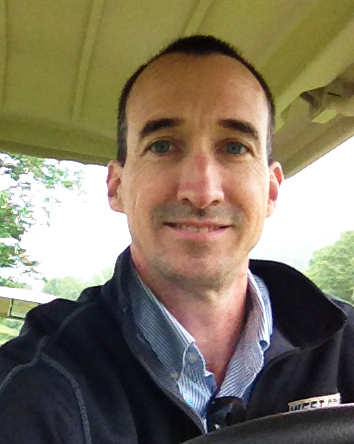
Steve Finn (Chappaqua, NY)
After a decade of playing in the Open division in Philadelphia, New York, and Seattle, Steve Finn swapped to Mixed and became a dominant force in that division from 2002-2011, leading multiple teams to national championships through his exceptional skills as a cutter and thrower, and his strategic leadership that fostered team success and balanced play. He won 3 Mixed titles in 4 years with Seattle Shazam and San Francisco Brass Monkey, and was a mainstay on the medal podium for 15 years in the Masters and Grandmasters divisions. Steve has served as a college coach throughout his career, including coaching the Army Ultimate team for the last 14 years.

Raha Mozaffari (Philadelphia, PA)
No player in history has competed at more Mixed national championships than Raha Mozaffari, with 17 consecutive appearances as the heart and standout performer of Philadelphia AMP. Raha’s longevity is matched only by her exceptional impact on the division. An all-around force on the field, Raha could do everything, as evidenced by being the only Mixed player ever to earn Ultiworld recognition on the podiums for both Offensive Player of the Year and Defensive Player of the Year during her career. In addition to being a back-to-back national champion with AMP, Raha was a gold medalist with the US National Mixed team at WUGC 2016 and the Women’s Division team at WUC 2024, and won national and international titles in Women’s Masters.
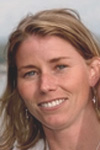
Skyla Sisco (Missoula, MT)
One of the most gifted athletes to ever play the sport, Skyla Sisco was an unstoppable force in the Mixed division for much of the 2000s and into the 2010s, known for her dominant athleticism and unmatched offensive and defensive versatility on Mental Toss Flycoons. During an 8 year tenure with the Missoula squad, Skyla was a key initiator and fearsome defender that every opponent had to game plan around, yet she still outpaced the hype and helped the small-town team to a national title and WUCC bronze. While her tenure at the top of the division may have been relatively short, few have ever shined brighter at their peak.

Will Sutton (Missoula, MT)
One of the most successful and dominant players in the division’s first decade and a half, Will Sutton was a consummate winner, powering Montana teams to title after title. Combining exceptional athleticism with a complete mastery of all throws, strategic acumen, and a relentless competitive spirit, Will has more Mixed national titles than any other player, winning four between 2001 and 2008 across runs with Trigger Hippy, Donner Party, and Mental Toss Flycoons in addition to a 2004 WUGC win and two bronze medal finishes at WUCC in 2002 and 2010. Described as both solid and splashy, Will had an all-around game that allowed him to be a playmaker on both sides of the disc whenever his teams needed it.
OPEN DIVISION – Look Back

Rick Geyer (Springfield, OR)
Rick Geyer combined dazzling athleticism, keen strategic insights, and clutch play to become one of the most feared and respected players of his era. Rick was a team leader whose winning attitude was contagious. With Rick in the huddle and on the field, his teams believed they could beat the best teams in the world—and they did. Rick won a College Championship with Stanford in ‘84, two National Championships with Bay Area club teams, Flying Circus and Tsunami in ‘85 & ‘88, and WUGC in Colchester, England with Tsunami in 1986. In addition to being a phenomenal goal-scorer, Rick is credited by his teammates as being one of the architects of the “Stanford O,” an offensive set that revolutionized the sport in the late ‘80s and early ‘90s. Rick, an unassuming and private man, never advocated for himself. Fortunately, in the 2024 Look-Back process, his teammates and opponents did. Rick Geyer’s enormous contributions to the sport as a player and team leader may finally be recognized.
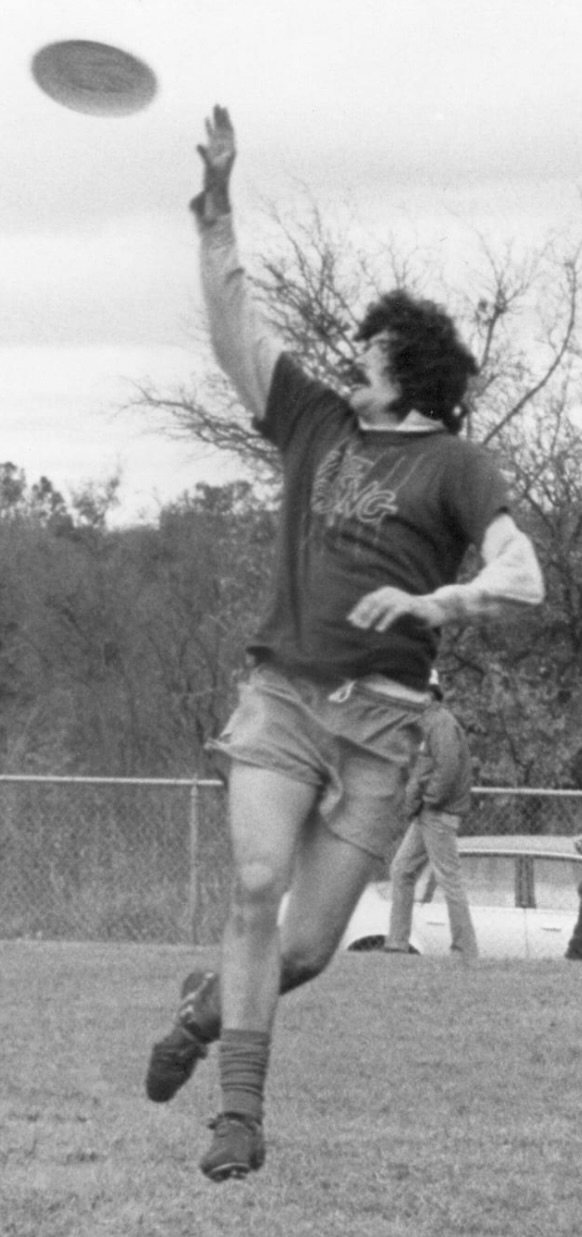
Toby Hankins (Woodstock, GA)
Toby Hankins was known as “All-World” to players of a certain generation for his exceptional skills and field presence. He played at a level above, both figuratively and literally. He was bigger, faster, smoother, and more graceful than anyone else. He galloped around the field like a wild horse—then, suddenly, when the disc was near, he summoned the agility of a jungle cat and pounced. In his legendary performance at Club Nationals in 1981 with the Knights of Nee, he led his team to the finals, dominated the entire tournament, and earned himself an MVP award in a losing effort. Toby starred at 4 Club Nationals with the Knights of Nee and The Gang from ’81-’84 and competed in the first College Nationals finals with Glassboro in 1984. Toby stayed in one region during his brief career which may explain why he hasn’t been in the Hall of Fame conversation before now. But those who played with and against Toby “All-World” will never forget his effortless domination, his playful spirit, and his greatness.

Mauricio Matiz (New York, NY)
Mauricio Matiz was a standout two-way Ultimate player and among the best on the East Coast in the late 1970s and early ‘80s. A college runner, he discovered Ultimate in 1977 and quickly became known for his quickness, hops, and ability to dominate in the deep position despite his 5’9” frame. After graduating in 1979, he co-founded New York’s first club team, The Heifers, and played every point on an ironman squad that reached the 1982 April Fools East finals and Central Championship finals. As a key player on Kaboom!, he won April Fools twice and reached Club Nationals four years in a row. Known for his humility, athleticism, leadership, and spirit, Mauricio was highly respected by teammates and opponents alike. Over his 12-year playing career, he consistently delivered dominant performances that required opposing teams to plan around him. Mauricio Matiz exemplified all the qualities of a Hall of Famer—impressive athleticism, leadership, and the ability to influence the game.
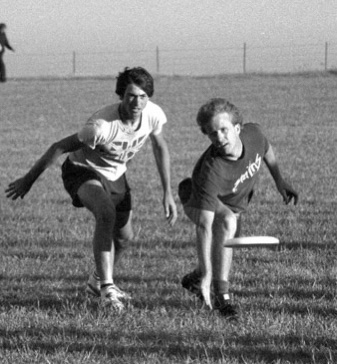
Mark Orders (Moraga, CA)
Mark “Muddy” Orders may best be known as one of the game’s great pure throwers and a significant mentor who taught dozens of women and men how to play, including numerous Hall of Famers. He was the inspirational leader of teams that rose to national prominence in four different states – Michigan, Colorado, Illinois, and California – MSU, The Stains, Windy City, LA Drivers, and Iguanas. Mark understood game strategy and player mechanics like few others. He had the patience, drive, and clarity of thought to share this knowledge with teams across the country and with countless players who went on to do great things. Muddy inspired teams and individuals with his wisdom, his calm, and his deep understanding of what it takes to achieve success. Known for making key in-game adjustments, Muddy’s influence helped teams rise above. Ultimately, Mark will be best remembered as a player who carried excellence wherever he went.
WOMEN’S DIVISION – Look Back
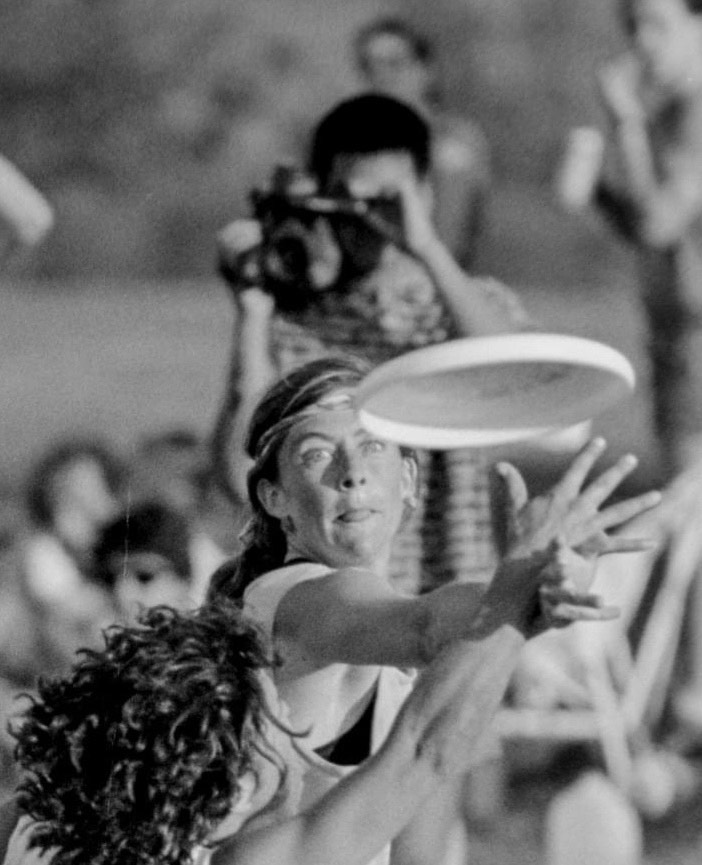
Leslie Grayson (Upperville, VA)
Leslie Grayson is widely regarded as one of the best ultimate players to never be inducted into the Hall of Fame. A standout player for the Washington, D.C. team Satori, Leslie’s combination of skill, athleticism, and leadership made her a dominant force on the field throughout the late ’80s and early ’90s. As a co-captain, she helped lead Satori to four Regional championships, four Nationals semi-finals, and two Worlds semi-finals. Leslie’s consistency was unparalleled; whether it was shutting down opponents with sick layout blocks, slicing through zones, or delivering calm, composed scoring throws, Leslie was the player who kept Satori in the game. Off the field, she was the epitome of spirit, always cool-headed and a voice of reason for her teammates. A brilliant strategist and fierce competitor, Leslie embodied ultimate at its highest level—passionate, composed, and truly inspiring.
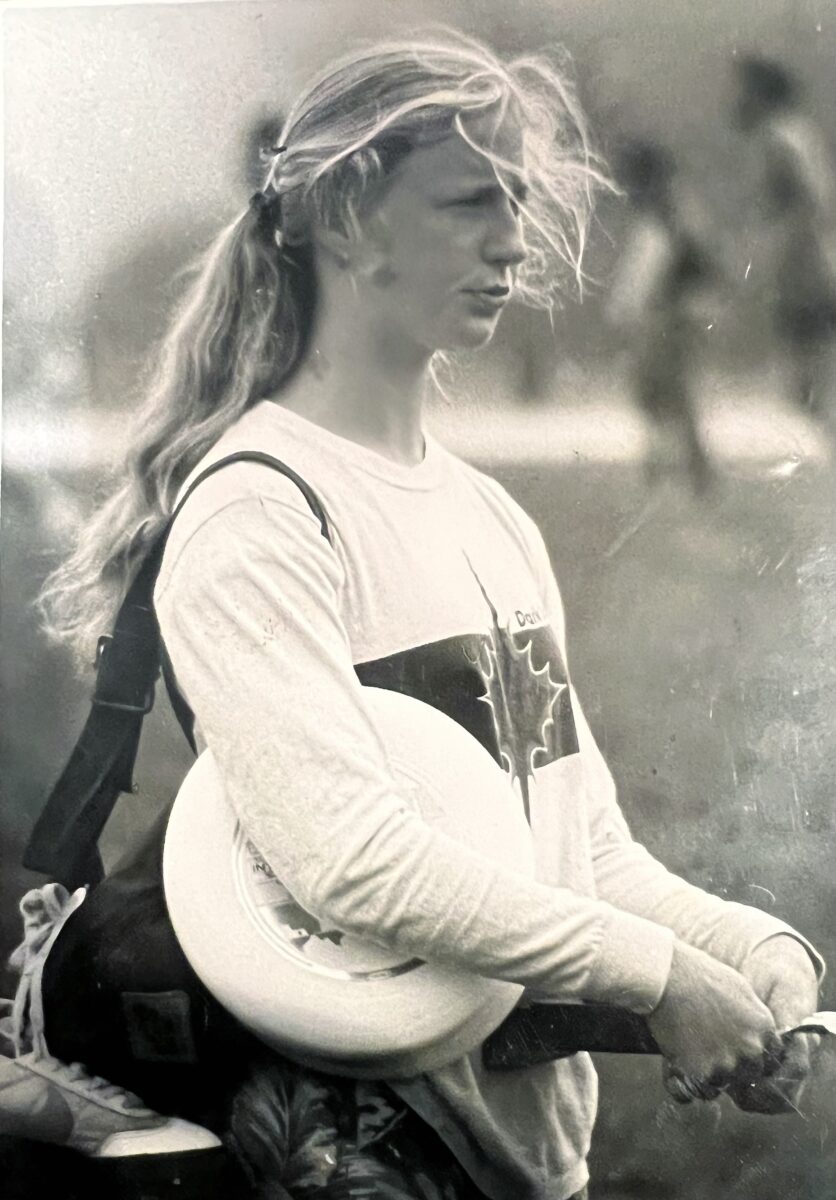
Susan Hawkins (Portland, OR)
Susan Hawkins’ athleticism and skill made her a dominant force on the field, earning her a spot among the most respected players of her time. As a key member of Dark Star, Ultimate Synergy, and UMass-Amherst ZULU, she contributed to team success on the West and East Coasts. Her speed, agility, and layout ability set her apart. When playing defense, her long arms seemed to cover an entire zone, making her a constant threat. Susan played with Dark Star in the early years of ultimate before the women’s division existed, competing at the initial Women’s division National Championships in 1981 with Ultimate Synergy with a second place finish, and in 1982, won Club Nationals with Zulu, a women’s division college team. Her presence on both coasts and her consistent dominance in competition highlight her versatility and impact on the sport. Susan’s athleticism, leadership, and legacy as a game-changer on both coasts make her an ideal Ultimate Hall of Fame member.

DeDe Kobylarz Singer (Dexter, MI)
DeDe Kobylarz was a standout athlete before joining the Michigan State University Women’s Ultimate; her speed and jumping ability set her apart from the start. Once she learned the game, she became the primary deep target, catching everything. Known for her fearless diving on both offense and defense, DeDe was a game-changer. She was consistently tasked with covering the best deep receivers against top teams; her ability to shut them down was unmatched. After making the deep defensive plays, DeDe would typically sprint full field to catch the next score. When the team’s top handlers graduated and moved on, DeDe stepped into the role of dominant handler. Off the field, DeDe’s vibrant personality energized the Fisheads (formerly MSU Ultimate); she was renowned for her quirky tradition of bringing a fresh fish head and psych factor which teammates “worshiped.” DeDe’s combination of athleticism, dominance, and stature made her a feared and respected player with a legacy of performance and leadership.

Liz Phillips (Durham, NC)
Liz Phillips was a standout athlete with undeniable impact on every team she played for; Satori, Grits, Mischief, and Lady Godiva. Known for her competitiveness and skill, Liz started her national-caliber career with Satori and quickly became recognized for her speed, athleticism, passion, and spirit. Her ability to make spectacular plays, on both offense and defense, particularly with layouts, redefined what was possible in the game at the time. Teams were forced to game plan around her, often assigning their best defender in hopes of containing her. But once Liz caught fire, she was nearly unstoppable. Her leadership and athleticism made her an inspirational figure on teams filled with talent. After joining Godiva, Liz continued to be a formidable adversary for opponents, further cementing her legacy. Her combination of skill, drive, and sportsmanship earned the respect of everyone who faced her on the field.
CONTRIBUTORS
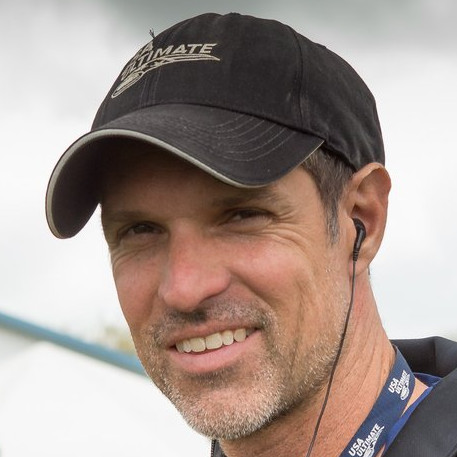
Will Deaver (Louisville, CO)
For 24 years, Will Deaver has dedicated his career to advancing the sport of Ultimate and the way it is played, demonstrating exceptional leadership and clear vision. As the Managing Director of Competition and National Teams for USA Ultimate (and UPA before), Deaver has been instrumental in shaping the modern rules and competitive structure of the sport, including co-authoring the influential Callahan Rules. He has created and overseen major championship events over decades across multiple divisions, and has played a key role in expanding and advancing US national team programs. Whether the challenge has involved balancing the observer role with self-officiation, designing creative tournament formats, memorializing new editions of the rules, creating manuals to ensure consistent practices, launching and facilitating vital planning committees, or just running a great national championship, Will has always held excellence as his standard and strived to incorporate ultimate’s values in organizational decision-making. His impact on the sport and our community are immeasurable.

Michelle Ng (SF Bay Area, CA)
Twenty years ago, Michelle Ng took a hard look at the state of college women’s ultimate and made it her mission to change the ways in which college women’s division was organized, managed, and presented. She set out to advance the division by making it more professional, more accessible, and more fun. Michelle was committed to elevating inclusion, broad participation, and ongoing training as cornerstones of her growth strategies. Since 2005, Michelle has organized over 130 tournaments and clinics. She founded tournaments like Midwest Throwdown and Commonwealth Cup, mentored countless college players, and trained college teams to run their own tournaments. Michelle worked tirelessly to create divisions to suit all levels of play, and when possible, offered clinics for tournament players taught by local elite players. In 2010, she founded Without Limits, an organization dedicated to fostering relationships and promoting growth within the women’s ultimate community. Her efforts have led to the creation of essential resources, such as the College Women’s Division and Girls’ High School Ultimate Resources Manuals.

Lynne Nolan (Naperville, ILL)
Lynne Nolan has worked to build Illinois ultimate into a thriving youth and club scene for over 30 years. In the 1990’s, she served as the Women’s Central Regional Coordinator and UPA Board Member. In 1994, Lynne founded Tune-up, a premiere tournament that attracted the best Open and Women’s division teams from coast to coast. Lynne eventually expanded the tournament to include 87 teams, increasing access to top competition for all levels. With a format that maximized the number of games played, allowed wins by one point, and enabled winning teams to move up divisions, she established innovations that would be adapted and built upon. As a founding member and Treasurer of Illinois Youth Ultimate and the Illinois Ultimate State Based organization of USAU, she organized high school state championships, middle school and high school leagues, and summer camps. Lynne’s steadfast efforts have earned her a reputation as a local champion; she continues to lead, organize, and set up cones to this day.

Henry Thorne (Pittsburgh, PA)
Henry Thorne has been obsessed with ultimate for over 4 decades, committing significant personal time and energy to navigating and securing some of the game’s most pivotal innovations. These include integrating mixed division competition into the national championship series, approving the adoption of the Callahan Rules, helping to create a national youth ultimate infrastructure, refining the observer role, centering spirit of the game and player-controlled ethos in policy, and professionalizing the governing body of the sport. Henry has always been a change agent and bridge builder in advancing the sport. He has worked to make ultimate more inclusive, accessible, and mainstream, yet always stayed true to its player-focused roots and core values. To accomplish that as a UPA/USAU Board member between 1997 and 2018, Henry made community engagement part of every change effort, ensuring the ultimate community was always ‘at the table’. After over 40 years of playing, organizing, and volunteering, Henry’s mark on our sport is deep, widespread, and profound.
CONTRIBUTORS – Look Back
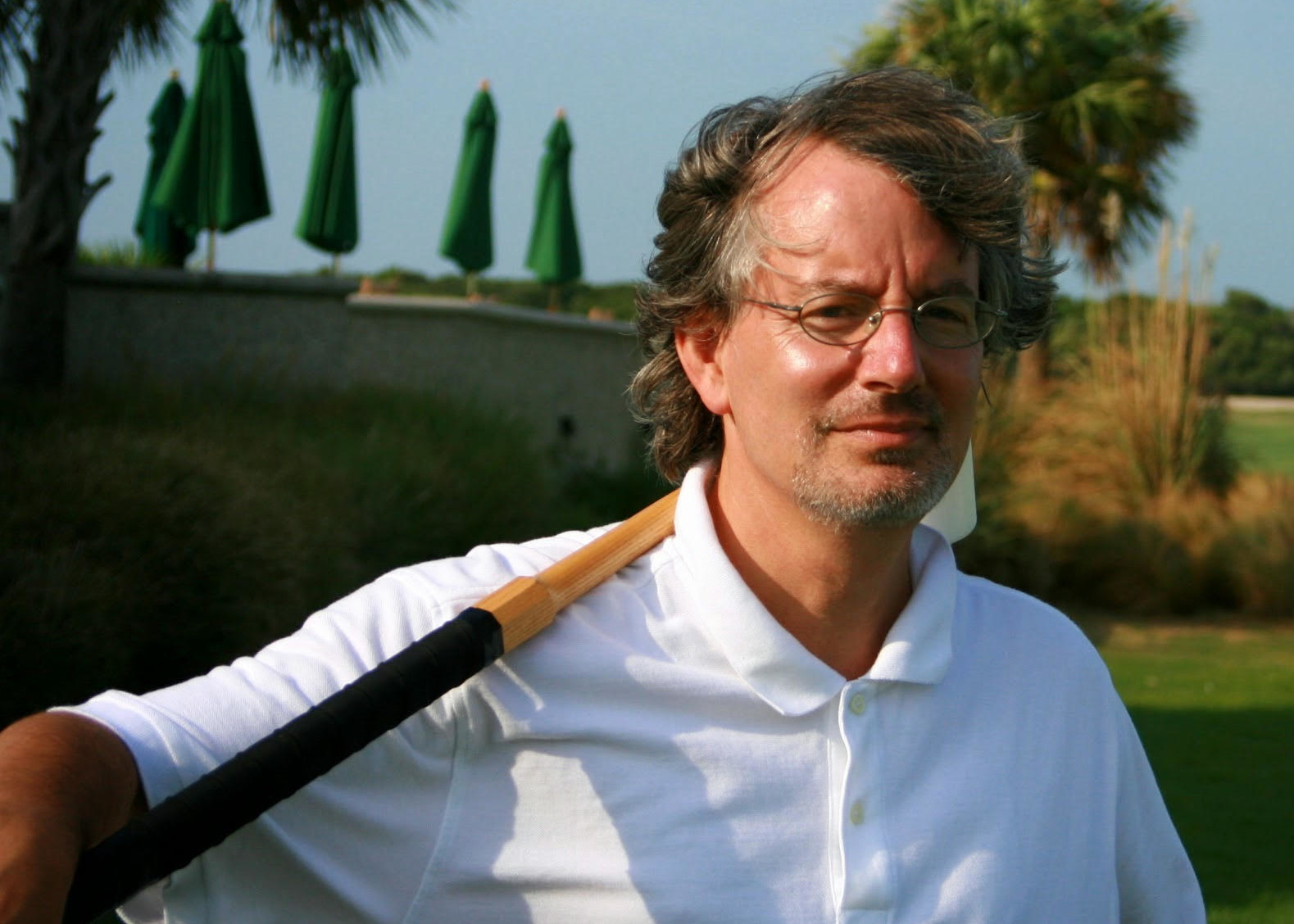
Charles Kerr (Durham, NC)
Charles Kerr was widely recognized for his visionary leadership in transforming rule and award innovations between 1996 and 2002 through the development of the Callahan Rules (along with Will Deaver) and the Callahan Award. Following his re-launch of the NC State ultimate team in the early ‘90’s and their return to College Nationals, Charles’ focus shifted to the Callahan innovations that had an historic impact on the sport. Charles championed player control and Spirit of the Game, pushing for a more efficient and enjoyable experience. At a time when games were slowed by long discussions, Charles led efforts to streamline the rules, empowering observers to take a more active role, and clarifying ambiguous rule details. The Callahan Rules were adopted in the 10th edition rulebook and reshaped the game. The Callahan Goal—allowing a defensive interception to score—was a game-changing innovation, now used globally. The prestigious Callahan Award was created to honor the college player who best exemplifies excellence and sportsmanship. Charles’ contributions have forever altered the way ultimate is played, viewed, overseen and celebrated.
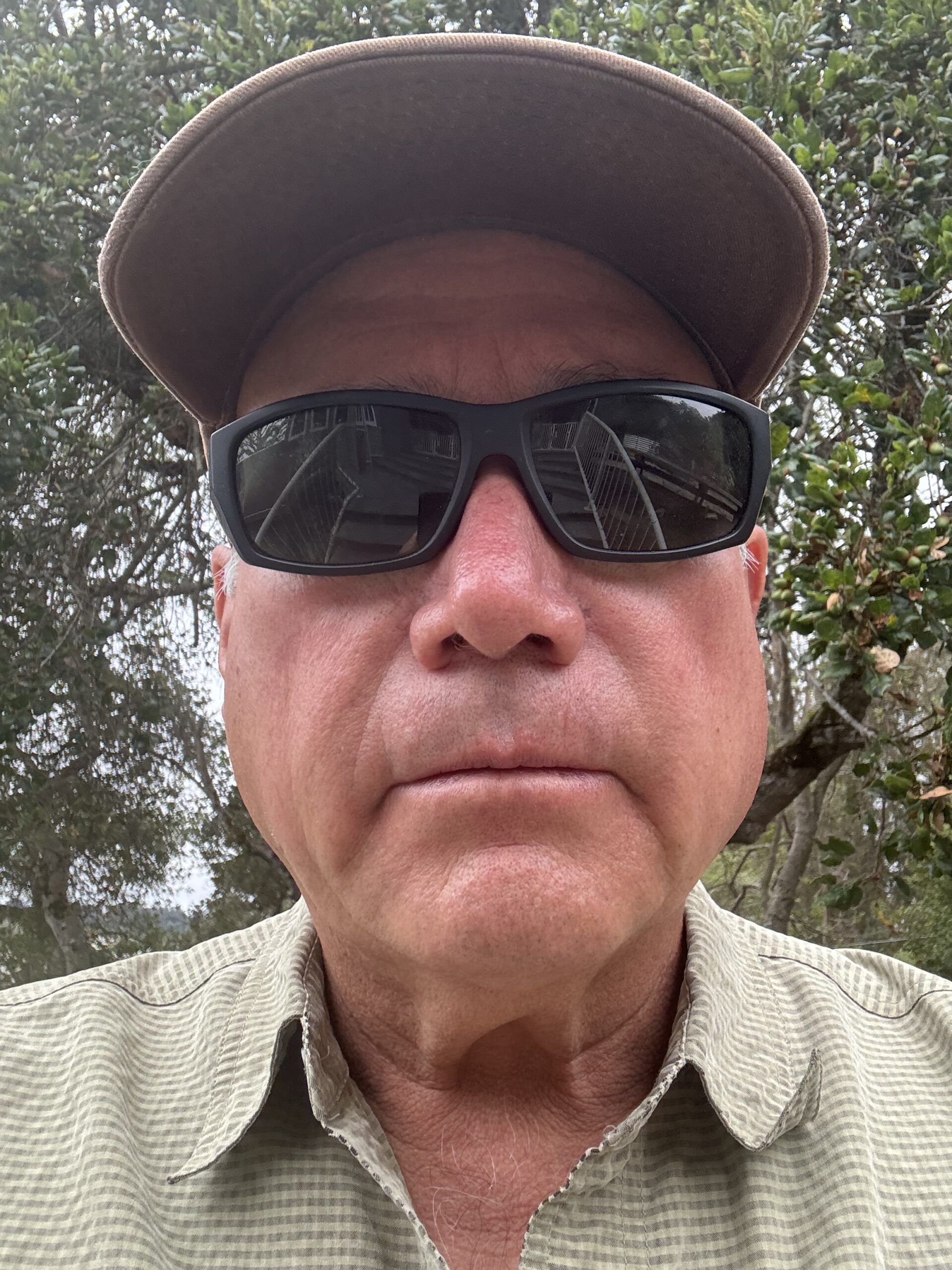
Bob Pallares (Soquel, CA)
For over a decade, Bob Pallares hosted some of the West Coast’s best ultimate events at UC Santa Cruz, creating unforgettable experiences for players of all levels. As a tournament director, his innovative, fun, and inclusive approach left a lasting impact on thousands. From 1989 to 1991, Bob served as Western Regional Coordinator, driving growth by creating a B division and doubling participation, while also inventing new rules like the hard cap. He helped establish the Hawaii section which encouraged the flourishing ultimate scene throughout the islands. Bob led the Santa Cruz Labor Day Tournament and California State Championships, experimenting with formats to enhance competition and build community. In 1997, Bob volunteered to coach the Bay Area’s Fury Women’s division team. From 1997 to 2004, his growth mindset and player-first approach helped guide Fury to unparalleled success (and first National Championship in 1999), shaping the future of Women’s division ultimate. Bob’s legacy as an organizer and coach is exemplary.
Suzanne Fields (Chair, Hall of Fame Vetting Committee) – HoF Inaugural Class of ‘04
Bart Watson (Open Peer Co-lead) – HoF Class of ‘22
Jim Parinella (Open Peer Co-lead) – HoF Class of ’14
Josh Markette (Open Peer Co-lead) – HoF Class of ’23
Dominique Fontenette – (Women’s Division Peer Co-lead) – HoF Class of ‘18
Katey Forth – (Women’s Division Peer Co-lead) HoF Class of ‘21
Miranda Roth Knowles – (Women’s Division Peer Co-lead) – HoF Class of ‘22
Alicia White – (Women’s Division Peer Co-lead) HoF Class of ’22
Gwen Ambler – (Women’s Division Peer Co-lead) HoF Class ’21
Pam Kraus (Mixed Division Co-lead) – HoF Class of ‘17
Emily Smith-Wilson (Mixed Division Co-lead) – HoF Class of ‘22
Scotty Conway (Mixed Division Co-lead) – HoF Class of ’22
Kendra Frederick (Mixed Division Co-lead) – HoF Class of ’23
Jennifer JD Donnelly (Contributors) – HoF Class of ’21
Dave Blau – (President, Ultimate Hall of Fame Board of Directors) – HoF Class of ‘17
#####